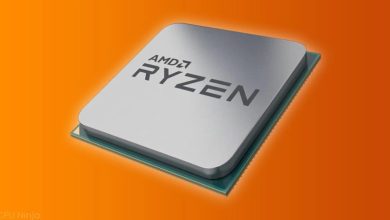When it comes to gaming, achieving the best CPU temperatures is not just about performance; it’s also about ensuring the longevity and stability of your gaming rig. The temperature of your CPU plays a critical role in determining how well your gaming sessions run, as overheating can lead to thermal throttling and reduced performance. In this guide, we’ll explore the optimal CPU temperatures for gaming and provide insights on achieving and maintaining them.
Why CPU Temperatures Matter:
Your CPU is the brain of your gaming PC, responsible for executing instructions and calculations for your games. As it works, it generates heat, and managing this heat is crucial for the following reasons:
Performance: An overheating CPU can lead to thermal throttling, where the CPU reduces its clock speed to cool down. This results in reduced gaming performance and frame rates.
-
Cooper Tires 2024 Review: Ratings, Types & CostsFebruary 2, 2024
-
New 2024 XReal Air 2 Ultra: A More Affordable Apple Vision Pro?February 2, 2024
-
What is Neuralink Brain Chip?February 2, 2024
-
How Much Will Neuralink Cost in 2024?February 2, 2024
Longevity: High temperatures can shorten the lifespan of your CPU. Prolonged exposure to excessive heat can lead to permanent damage.
Stability: Stable and consistent temperatures ensure that your gaming sessions are smooth and free from sudden shutdowns or crashes caused by overheating.
Optimal Efficiency: Keeping your CPU at an ideal temperature range allows it to operate at its full potential, maximizing your gaming experience.
Ideal CPU Temperatures for Gaming:
The ideal CPU temperatures for gaming can vary depending on your specific CPU model, cooling solution, and environmental factors. However, here’s a general guideline:
Idle Temperature: During idle or low-intensity tasks, your CPU should ideally remain at 30°C to 45°C. Modern CPUs are designed to operate efficiently at low temperatures when not under load.
Under Load Temperature: When gaming or running CPU-intensive tasks, it’s normal for CPU temperatures to rise. The optimal range under load is typically between 60°C to 80°C, but staying below 90°C is essential to prevent thermal throttling and potential damage.
Achieving Optimal CPU Temperatures:
To achieve and maintain optimal CPU temperatures for gaming, consider the following:
High-Quality Cooling: Invest in a high-quality CPU cooler, whether an air cooler or liquid cooling solution. Efficient cooling is critical to keeping temperatures in check.
Proper Case Ventilation: Ensure your gaming PC has adequate airflow with strategically placed fans. Good airflow helps dissipate heat effectively.
Cleanliness: Regularly clean dust from your CPU cooler and case fans. Dust accumulation can hinder airflow and lead to higher temperatures.
Thermal Paste: Apply a high-quality thermal paste between the CPU and cooler for efficient heat transfer.
Monitor Temperatures: Use CPU temperature monitoring software to monitor temperatures during gaming sessions. This allows you to identify and address cooling issues promptly.
In this guide, we’ll delve deeper into each aspect, providing insights into optimizing your CPU temperatures for an exceptional gaming experience. Whether you’re a casual or competitive gamer, achieving the best CPU temperatures can elevate your gaming performance and enjoyment.
















